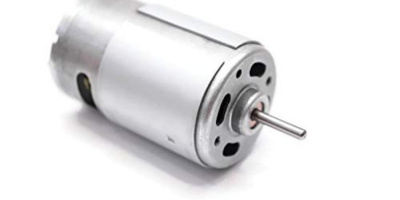When it comes to powering a wide range of electrical applications—from robotics to electric vehicles and industrial machinery—DC motors are a fundamental component. But for both buyers and manufacturers, one common question looms: What determines a DC motor price? The answer isn’t as straightforward as you might expect. Like many technical components, the cost of a DC motor depends on several key factors including size, power, material quality, brand, and intended use. This article will help you understand these variables and offer some guidance on selecting the right motor for your needs without overspending.
The Basics: What is a DC Motor?
A DC motor (short for Direct Current motor) is an electrical device that converts electrical energy into mechanical motion using direct current electricity. It’s widely used in electronics, home appliances, automotive systems, and more. There are different types of DC motors, including brushed, brushless, and geared motors—all with varying performance specs and costs.
Factors That Affect DC Motor Price
1. Type of DC Motor
Not all DC motors are created equal. A brushed DC motor is typically cheaper and simpler in construction but wears out faster due to friction. In contrast, brushless DC motors (BLDC) are more efficient, have longer life spans, and require less maintenance—hence they cost more.
2. Voltage and Power Rating
The higher the voltage and power output of the motor, the higher the price. A 12V DC motor used in small appliances may cost significantly less than a 48V or 90V industrial-grade motor. Similarly, motors designed to deliver higher torque or RPMs (revolutions per minute) also come at a premium.
3. Material and Build Quality
High-grade materials like copper windings, neodymium magnets, and stainless-steel shafts raise the quality and efficiency of a motor but also drive up the price. Cheap motors often cut costs by using aluminum or lower-grade components, which may affect performance and longevity.
4. Brand and Manufacturer
Just like with consumer electronics, brand reputation plays a role. Well-known manufacturers often charge more due to their proven reliability, warranty services, and consistent quality. However, many smaller or lesser-known brands offer competitive prices for similar performance, especially in bulk orders.
Average Price Range of DC Motors
Prices vary widely based on specifications, but here’s a general idea:
- Mini DC motors for toys or hobby electronics: $2 to $10
- Standard brushed motors (12V, low RPM): $10 to $50
- Brushless motors (BLDC): $30 to $200 depending on power and size
- Industrial DC motors (high torque, sealed): $200 to $1000+
Bulk buying, OEM deals, and wholesale arrangements can bring down unit prices significantly.
Where to Buy?
You can find DC motors from several sources:
- Online marketplaces like Amazon, eBay, and Alibaba for small-scale and hobbyist purchases
- Industrial suppliers such as RS Components, Mouser, and Grainger
- Manufacturer-direct orders, ideal for large-volume buyers
Always compare pricing, delivery options, and warranties before making a purchase. A slightly more expensive motor with solid after-sales support might save you more in the long run.
How to Choose the Right Motor
Choosing the right DC motor isn’t just about budget—it’s about matching the motor’s capabilities to your application. Here’s what to consider:
- Required torque and speed
- Voltage and current supply
- Load type and duty cycle
- Environmental factors (temperature, moisture, etc.)
- Size and mounting requirements
Don’t just chase the cheapest option. A mismatch can result in inefficiency, overheating, or even damage to your application. Always read datasheets, compare specs, and if unsure, consult with a motor engineer.
Final Thoughts
The DC motor price is shaped by a combination of technical, material, and market factors. Whether you’re a DIY enthusiast or a purchasing manager sourcing motors for industrial applications, it pays to be informed. Evaluate your specific requirements, compare options wisely, and don’t forget to factor in long-term value—not just the upfront cost.

